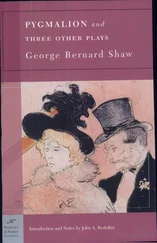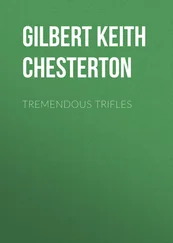Gilbert Chesterton - George Bernard Shaw
Здесь есть возможность читать онлайн «Gilbert Chesterton - George Bernard Shaw» — ознакомительный отрывок электронной книги совершенно бесплатно, а после прочтения отрывка купить полную версию. В некоторых случаях можно слушать аудио, скачать через торрент в формате fb2 и присутствует краткое содержание. Жанр: foreign_antique, foreign_prose, на английском языке. Описание произведения, (предисловие) а так же отзывы посетителей доступны на портале библиотеки ЛибКат.
- Название:George Bernard Shaw
- Автор:
- Жанр:
- Год:неизвестен
- ISBN:нет данных
- Рейтинг книги:5 / 5. Голосов: 1
-
Избранное:Добавить в избранное
- Отзывы:
-
Ваша оценка:
- 100
- 1
- 2
- 3
- 4
- 5
George Bernard Shaw: краткое содержание, описание и аннотация
Предлагаем к чтению аннотацию, описание, краткое содержание или предисловие (зависит от того, что написал сам автор книги «George Bernard Shaw»). Если вы не нашли необходимую информацию о книге — напишите в комментариях, мы постараемся отыскать её.
George Bernard Shaw — читать онлайн ознакомительный отрывок
Ниже представлен текст книги, разбитый по страницам. Система сохранения места последней прочитанной страницы, позволяет с удобством читать онлайн бесплатно книгу «George Bernard Shaw», без необходимости каждый раз заново искать на чём Вы остановились. Поставьте закладку, и сможете в любой момент перейти на страницу, на которой закончили чтение.
Интервал:
Закладка:
This is the truth about mystical dogmas and the truth about Irish bulls; it is also the truth about the paradoxes of Bernard Shaw. Each of them is an argument impatiently shortened into an epigram. Each of them represents a truth hammered and hardened, with an almost disdainful violence until it is compressed into a small space, until it is made brief and almost incomprehensible. The case of that curt remark about Ireland and Yorkshire is a very typical one. If Mr. Shaw had really attempted to set out all the sensible stages of his joke, the sentence would have run something like this: "That I am an Irishman is a fact of psychology which I can trace in many of the things that come out of me, my fastidiousness, my frigid fierceness and my distrust of mere pleasure. But the thing must be tested by what comes from me; do not try on me the dodge of asking where I came from, how many batches of three hundred and sixty-five days my family was in Ireland. Do not play any games on me about whether I am a Celt, a word that is dim to the anthropologist and utterly unmeaning to anybody else. Do not start any drivelling discussions about whether the word Shaw is German or Scandinavian or Iberian or Basque. You know you are human; I know I am Irish. I know I belong to a certain type and temper of society; and I know that all sorts of people of all sorts of blood live in that society and by that society; and are therefore Irish. You can take your books of anthropology to hell or to Oxford." Thus gently, elaborately and at length, Mr. Shaw would have explained his meaning, if he had thought it worth his while. As he did not he merely flung the symbolic, but very complete sentence, "I am a typical Irishman; my family came from Yorkshire."
What then is the colour of this Irish society of which Bernard Shaw, with all his individual oddity, is yet an essential type? One generalisation, I think, may at least be made. Ireland has in it a quality which caused it (in the most ascetic age of Christianity) to be called the "Land of Saints"; and which still might give it a claim to be called the Land of Virgins. An Irish Catholic priest once said to me, "There is in our people a fear of the passions which is older even than Christianity." Everyone who has read Shaw's play upon Ireland will remember the thing in the horror of the Irish girl at being kissed in the public streets. But anyone who knows Shaw's work will recognize it in Shaw himself. There exists by accident an early and beardless portrait of him which really suggests in the severity and purity of its lines some of the early ascetic pictures of the beardless Christ. However he may shout profanities or seek to shatter the shrines, there is always something about him which suggests that in a sweeter and more solid civilisation he would have been a great saint. He would have been a saint of a sternly ascetic, perhaps of a sternly negative type. But he has this strange note of the saint in him: that he is literally unworldly. Worldliness has no human magic for him; he is not bewitched by rank nor drawn on by conviviality at all. He could not understand the intellectual surrender of the snob. He is perhaps a defective character; but he is not a mixed one. All the virtues he has are heroic virtues. Shaw is like the Venus of Milo; all that there is of him is admirable.
But in any case this Irish innocence is peculiar and fundamental in him; and strange as it may sound, I think that his innocence has a great deal to do with his suggestions of sexual revolution. Such a man is comparatively audacious in theory because he is comparatively clean in thought. Powerful men who have powerful passions use much of their strength in forging chains for themselves; they alone know how strong the chains need to be. But there are other souls who walk the woods like Diana, with a sort of wild chastity. I confess I think that this Irish purity a little disables a critic in dealing, as Mr. Shaw has dealt, with the roots and reality of the marriage law. He forgets that those fierce and elementary functions which drive the universe have an impetus which goes beyond itself and cannot always easily be recovered. So the healthiest men may often erect a law to watch them, just as the healthiest sleepers may want an alarum clock to wake them up. However this may be, Bernard Shaw certainly has all the virtues and all the powers that go with this original quality in Ireland. One of them is a sort of awful elegance; a dangerous and somewhat inhuman daintiness of taste which sometimes seems to shrink from matter itself, as though it were mud. Of the many sincere things Mr. Shaw has said he never said a more sincere one than when he stated he was a vegetarian, not because eating meat was bad morality, but because it was bad taste. It would be fanciful to say that Mr. Shaw is a vegetarian because he comes of a race of vegetarians, of peasants who are compelled to accept the simple life in the shape of potatoes. But I am sure that his fierce fastidiousness in such matters is one of the allotropic forms of the Irish purity; it is to the virtue of Father Matthew what a coal is to a diamond. It has, of course, the quality common to all special and unbalanced types of virtue, that you never know where it will stop. I can feel what Mr. Shaw probably means when he says that it is disgusting to feast off dead bodies, or to cut lumps off what was once a living thing. But I can never know at what moment he may not feel in the same way that it is disgusting to mutilate a pear-tree, or to root out of the earth those miserable mandrakes which cannot even groan. There is no natural limit to this rush and riotous gallop of refinement.
But it is not this physical and fantastic purity which I should chiefly count among the legacies of the old Irish morality. A much more important gift is that which all the saints declared to be the reward of chastity: a queer clearness of the intellect, like the hard clearness of a crystal. This certainly Mr. Shaw possesses; in such degree that at certain times the hardness seems rather clearer than the clearness. But so it does in all the most typical Irish characters and Irish attitudes of mind. This is probably why Irishmen succeed so much in such professions as require a certain crystalline realism, especially about results. Such professions are the soldier and the lawyer; these give ample opportunity for crimes but not much for mere illusions. If you have composed a bad opera you may persuade yourself that it is a good one; if you have carved a bad statue you can think yourself better than Michael Angelo. But if you have lost a battle you cannot believe you have won it; if your client is hanged you cannot pretend that you have got him off.
There must be some sense in every popular prejudice, even about foreigners. And the English people certainly have somehow got an impression and a tradition that the Irishman is genial, unreasonable, and sentimental. This legend of the tender, irresponsible Paddy has two roots; there are two elements in the Irish which made the mistake possible. First, the very logic of the Irishman makes him regard war or revolution as extra-logical, an ultima ratio which is beyond reason. When fighting a powerful enemy he no more worries whether all his charges are exact or all his attitudes dignified than a soldier worries whether a cannon-ball is shapely or a plan of campaign picturesque. He is aggressive; he attacks. He seems merely to be rowdy in Ireland when he is really carrying the war into Africa – or England. A Dublin tradesman printed his name and trade in archaic Erse on his cart. He knew that hardly anybody could read it; he did it to annoy. In his position I think he was quite right. When one is oppressed it is a mark of chivalry to hurt oneself in order to hurt the oppressor. But the English (never having had a real revolution since the Middle Ages) find it very hard to understand this steady passion for being a nuisance, and mistake it for mere whimsical impulsiveness and folly. When an Irish member holds up the whole business of the House of Commons by talking of his bleeding country for five or six hours, the simple English members suppose that he is a sentimentalist. The truth is that he is a scornful realist who alone remains unaffected by the sentimentalism of the House of Commons. The Irishman is neither poet enough nor snob enough to be swept away by those smooth social and historical tides and tendencies which carry Radicals and Labour members comfortably off their feet. He goes on asking for a thing because he wants it; and he tries really to hurt his enemies because they are his enemies. This is the first of the queer confusions which make the hard Irishman look soft. He seems to us wild and unreasonable because he is really much too reasonable to be anything but fierce when he is fighting.
Читать дальшеИнтервал:
Закладка:
Похожие книги на «George Bernard Shaw»
Представляем Вашему вниманию похожие книги на «George Bernard Shaw» списком для выбора. Мы отобрали схожую по названию и смыслу литературу в надежде предоставить читателям больше вариантов отыскать новые, интересные, ещё непрочитанные произведения.
Обсуждение, отзывы о книге «George Bernard Shaw» и просто собственные мнения читателей. Оставьте ваши комментарии, напишите, что Вы думаете о произведении, его смысле или главных героях. Укажите что конкретно понравилось, а что нет, и почему Вы так считаете.










